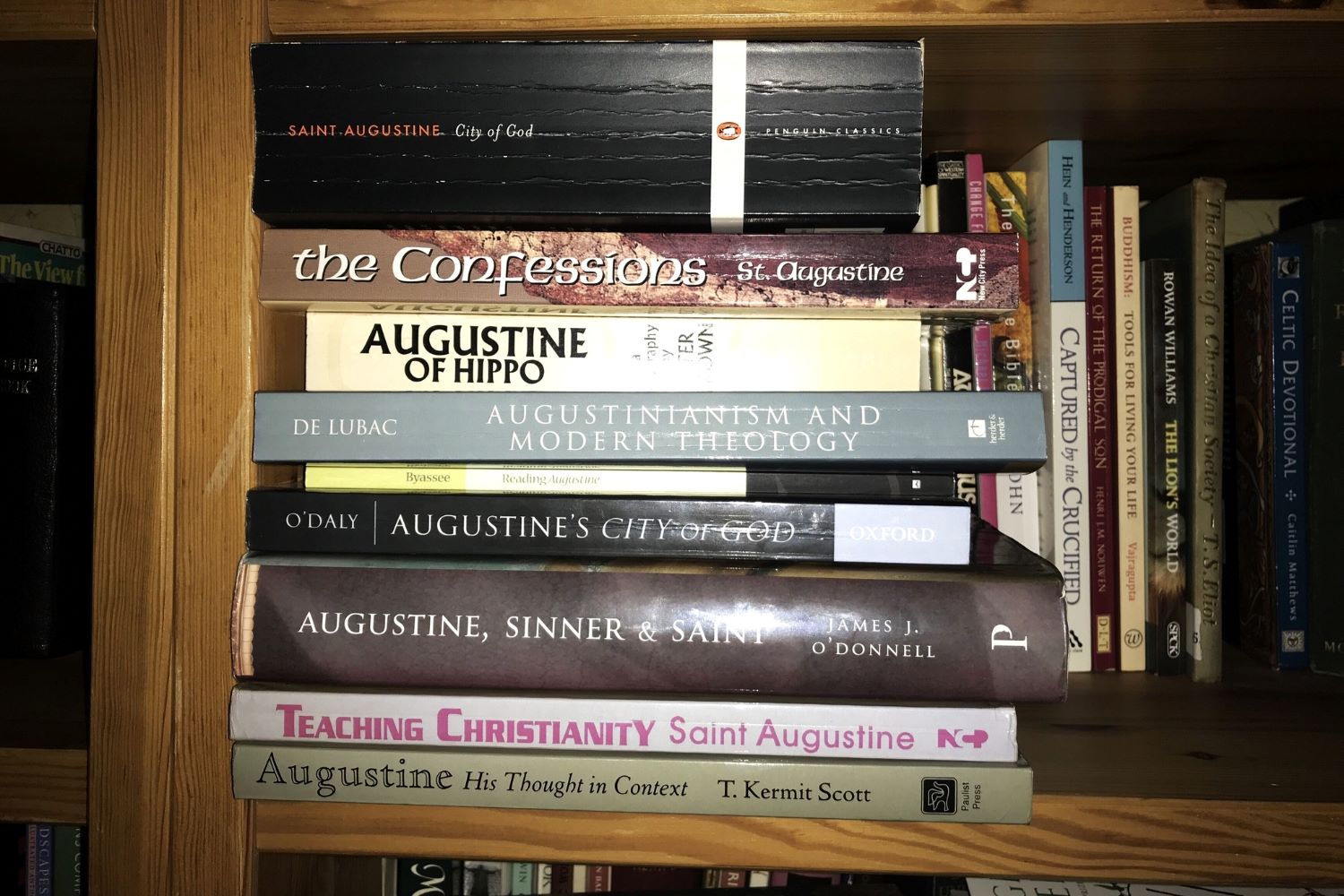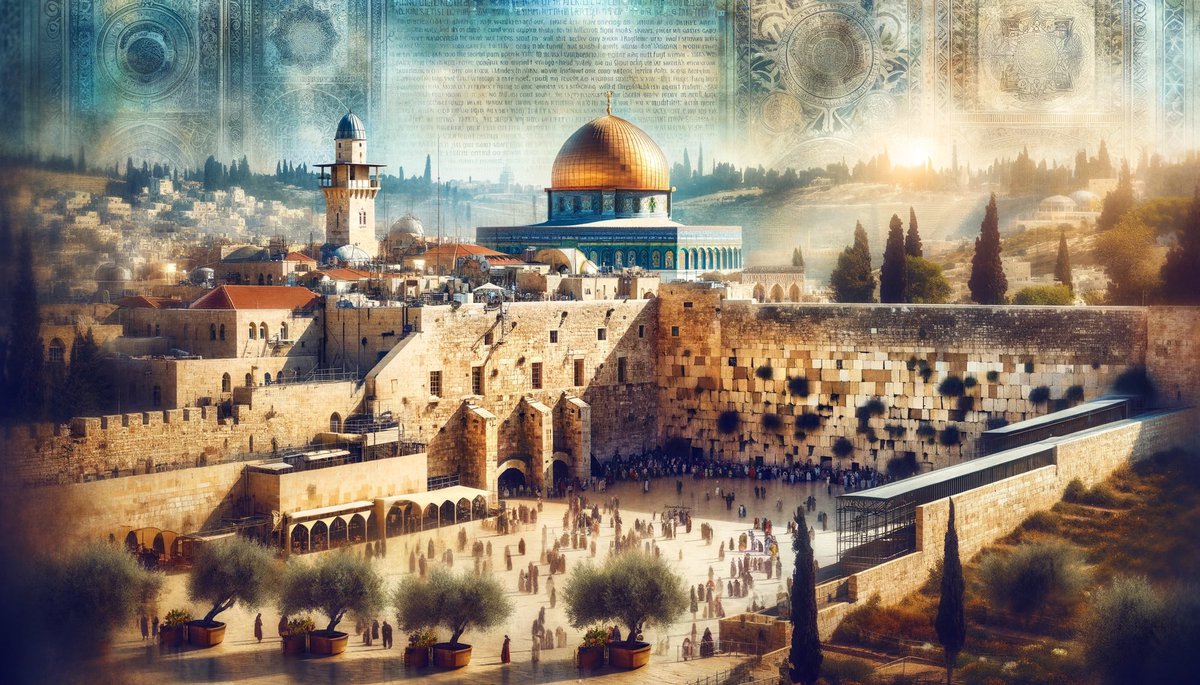Home>Bible Facts>What Island Did John Write The Book Of Revelation


Bible Facts
What Island Did John Write The Book Of Revelation
Published: February 11, 2024
Peter Smith, Editorial Director at Christian.net, combines deep insights into faith, politics, and culture to lead content creation that resonates widely. Awarded for his contributions to religious discourse, he previously headed a major organization for religious communicators, enhancing dialogue on faith's societal impacts.
Discover fascinating Bible facts about the island where John wrote the Book of Revelation. Uncover the historical and biblical significance of this intriguing location. Explore more with us!
(Many of the links in this article redirect to a specific reviewed product. Your purchase of these products through affiliate links helps to generate commission for Christian.net, at no extra cost. Learn more)
Table of Contents
Introduction
The island of Patmos holds a significant place in biblical history, particularly in relation to the authorship of the Book of Revelation. This small, rocky island, located in the Aegean Sea, is where the apostle John is believed to have received the visions that form the basis of the Book of Revelation. John's exile on Patmos and the profound impact it had on the Christian faith make this island a compelling subject of study and reflection.
The story of John's exile on Patmos and the subsequent writing of the Book of Revelation is shrouded in mystery and intrigue, adding to the allure of this historical setting. As we delve into the details of John's time on Patmos and the circumstances surrounding the composition of the Book of Revelation, we gain valuable insights into the early Christian era and the enduring relevance of the messages conveyed in this prophetic book.
The island of Patmos, with its rugged terrain and captivating vistas, serves as a backdrop to the extraordinary events that unfolded during John's exile. By exploring the geographical and historical context of Patmos, we can better appreciate the environment in which John received the divine revelations that would shape the future of Christianity.
As we embark on this exploration of the island of Patmos and its connection to the Book of Revelation, we are poised to uncover the profound significance of this location in the biblical narrative. The subsequent sections will delve deeper into John's exile on Patmos, the circumstances that led to the writing of the Book of Revelation, and the enduring impact of this pivotal work. Through this journey, we will gain a deeper understanding of the historical, spiritual, and literary dimensions of the island of Patmos and its role in shaping the course of Christian history.
Read more: What Book Did John The Baptist Write
The Island of Patmos
The island of Patmos, an idyllic and rugged landmass in the Aegean Sea, holds a revered place in Christian history. Its significance stems from the belief that the apostle John, exiled by the Roman authorities for his unwavering faith, received the divine visions that form the basis of the Book of Revelation while residing on this remote island. Patmos, characterized by its rocky terrain and captivating natural beauty, provided the backdrop for the extraordinary events that unfolded during John's exile.
Patmos, a part of the Dodecanese island chain, boasts a rich historical and cultural heritage. Its strategic location in the Aegean Sea made it a prized possession for various ruling powers throughout history. The island's rugged landscape, marked by steep cliffs and hidden coves, contributed to its reputation as a place of both isolation and inspiration. The captivating vistas and serene surroundings of Patmos provided a contrasting backdrop to the tumultuous events that unfolded during John's exile.
The island's main settlement, Chora, is home to the historic Monastery of Saint John the Theologian and the Cave of the Apocalypse, both of which are closely associated with the events surrounding the composition of the Book of Revelation. The Monastery of Saint John, a UNESCO World Heritage site, stands as a testament to the enduring legacy of John's presence on the island. The Cave of the Apocalypse, where tradition holds that John received his prophetic visions, remains a site of pilgrimage and contemplation for Christians from around the world.
Patmos' historical and geographical significance, coupled with its spiritual resonance, has made it a destination for religious pilgrims and scholars seeking to connect with the roots of the Christian faith. The island's tranquil beauty and profound historical legacy continue to draw visitors who are intrigued by the intersection of divine revelation and earthly surroundings.
As we delve into the details of the island of Patmos, we gain a deeper appreciation for the unique blend of natural splendor and spiritual significance that defines this ancient land. The next section will explore John's exile on Patmos, shedding light on the circumstances that led to the writing of the Book of Revelation and the enduring impact of this pivotal work. Through this exploration, we will uncover the profound significance of Patmos in the biblical narrative and its enduring influence on Christian history.
John's Exile on Patmos
John's exile on the island of Patmos stands as a defining chapter in the history of early Christianity. According to tradition, the Roman authorities banished the apostle John to Patmos as a result of his steadfast commitment to the Christian faith. This act of exile, intended to silence John's influential voice, instead became the catalyst for one of the most profound and enigmatic works in the New Testament: the Book of Revelation.
The circumstances of John's exile on Patmos are steeped in historical significance and spiritual intrigue. The apostle, already renowned for his close association with Jesus and his leadership within the early Christian community, found himself isolated on this remote island, separated from the burgeoning Christian congregations on the mainland. The rugged terrain and solitary nature of Patmos provided a stark contrast to the bustling centers of early Christianity, creating an environment of introspection and spiritual contemplation.
During his exile, tradition holds that John received a series of divine visions that would form the basis of the Book of Revelation. These apocalyptic visions, filled with vivid imagery and profound symbolism, conveyed messages of hope, perseverance, and ultimate triumph in the face of adversity. The juxtaposition of John's isolation on Patmos with the reception of these transcendent revelations underscores the profound nature of his experience and the enduring impact of the Book of Revelation.
The island of Patmos, with its rugged cliffs and panoramic vistas, served as the backdrop for John's transformative encounter with divine revelation. The natural beauty of the island, juxtaposed with the tumultuous political and religious landscape of the time, provided a setting that underscored the contrast between earthly turmoil and heavenly insight. John's exile on Patmos, far from stifling his spiritual vision, became the crucible in which the prophetic messages of the Book of Revelation were forged.
As we reflect on John's exile on Patmos, we are reminded of the resilience and unwavering faith that characterized the early Christian community. The apostle's solitary sojourn on this remote island became a testament to the enduring power of faith and the capacity for divine inspiration to transcend the boundaries of earthly confinement. The next section will delve into the Book of Revelation, exploring the profound themes and enduring significance of this pivotal work in the Christian canon. Through this exploration, we will gain a deeper understanding of the enduring legacy of John's exile on Patmos and the timeless relevance of the Book of Revelation in shaping the course of Christian history.
The Book of Revelation
The Book of Revelation, also known as the Apocalypse of John, stands as a singularly enigmatic and profound work within the New Testament. Composed during the apostle John's exile on the island of Patmos, this visionary text has captivated readers and scholars for centuries with its vivid imagery, symbolic depth, and prophetic messages. The Book of Revelation is the final book of the Christian Bible, and its enduring significance lies in its portrayal of apocalyptic visions, cosmic battles, and the ultimate triumph of good over evil.
At the heart of the Book of Revelation lies a series of divine revelations received by John during his exile on Patmos. These visions, conveyed through powerful symbolism and allegorical language, depict a cosmic drama that unfolds across the ages, culminating in the ultimate victory of God's kingdom. The book's apocalyptic imagery, including the Four Horsemen, the Seven Seals, and the Beast, has sparked intense debate and interpretation, leading to a rich tapestry of theological and eschatological discourse.
Central to the Book of Revelation is the theme of hope amidst adversity. The text offers reassurance to persecuted early Christians, conveying the message that ultimate justice and redemption await those who remain faithful in the face of tribulation. The book's portrayal of the Lamb of God, the New Jerusalem, and the defeat of the Dragon serves as a powerful allegory of the triumph of righteousness and the establishment of a new, harmonious order.
The enduring appeal of the Book of Revelation lies in its ability to speak to the human experience across time and culture. Its themes of perseverance, divine justice, and the ultimate victory of good over evil resonate with individuals facing adversity and uncertainty. The book's profound messages, conveyed through vivid and often enigmatic symbolism, continue to inspire contemplation, interpretation, and artistic expression.
As we contemplate the Book of Revelation, we are reminded of the enduring legacy of John's exile on Patmos and the profound impact of his visionary work on the Christian faith. The book's timeless themes and enduring relevance serve as a testament to the enduring power of faith, hope, and divine revelation. Through its enigmatic imagery and profound messages, the Book of Revelation continues to captivate and inspire readers, inviting them to ponder the mysteries of the divine plan and the ultimate triumph of God's kingdom.
Conclusion
The island of Patmos, with its rugged beauty and historical significance, holds a revered place in Christian history as the setting for the apostle John's exile and the composition of the Book of Revelation. John's solitary sojourn on this remote island, amidst its rocky cliffs and panoramic vistas, became the crucible in which divine revelations were received and the prophetic messages of the Book of Revelation were forged.
The enduring legacy of John's exile on Patmos and the profound impact of the Book of Revelation continue to resonate across the centuries. The book's themes of hope, perseverance, and the ultimate triumph of good over evil speak to the human experience, offering reassurance to those facing adversity and uncertainty. The vivid imagery and allegorical language of the Book of Revelation have sparked intense debate and interpretation, leading to a rich tapestry of theological discourse and artistic expression.
The island of Patmos, with its historic Monastery of Saint John and the Cave of the Apocalypse, remains a site of pilgrimage and contemplation, drawing visitors from around the world who seek to connect with the roots of the Christian faith. The tranquil beauty of Patmos, juxtaposed with the profound spiritual resonance of its historical legacy, continues to captivate and inspire those who are intrigued by the intersection of divine revelation and earthly surroundings.
As we reflect on the island of Patmos and its connection to the Book of Revelation, we are reminded of the enduring power of faith, hope, and divine inspiration. John's exile on Patmos serves as a testament to the resilience and unwavering commitment of the early Christian community, while the Book of Revelation stands as a timeless testament to the triumph of righteousness and the establishment of a new, harmonious order.
In conclusion, the island of Patmos and the Book of Revelation stand as enduring symbols of faith, perseverance, and the profound impact of divine revelation. The timeless themes and enduring relevance of the Book of Revelation continue to inspire contemplation and interpretation, inviting individuals to ponder the mysteries of the divine plan and the ultimate triumph of God's kingdom.















